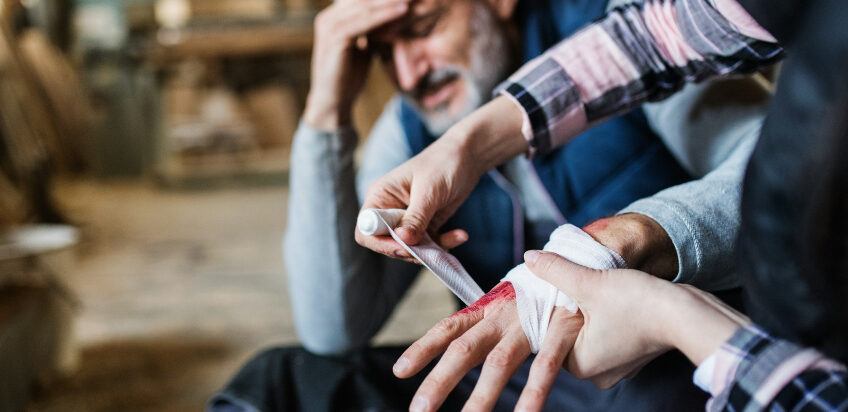Accidents can happen anywhere, but when you’re injured on someone else’s property, understanding your legal rights is essential. In New Jersey, property owners have a legal obligation to maintain safe conditions for visitors. If negligence contributed to your injury, you may be entitled to compensation. Here’s what to do if you find yourself in this situation.
Seek Immediate Medical Attention
Your health and safety should be the top priority. Even if your injuries seem minor, visit a healthcare professional to document the extent of your injuries. Prompt medical attention not only ensures your well-being but also establishes a critical record of your condition.
Report the Incident
Notify the property owner, manager, or responsible party as soon as possible. For example:
- If you were injured in a store, report the incident to a manager.
- For injuries on residential property, inform the homeowner.
Ask for a written report or incident log, and request a copy for your records.
Document the Scene
Gather evidence from the scene of the accident to support your claim. This may include:
- Photographs: Take pictures of the area where you were injured, focusing on hazards like wet floors, uneven surfaces, or poor lighting.
- Witness Statements: Collect contact information from anyone who saw the accident happen. Their testimony can be valuable later.
- Personal Notes: Write down the details of the incident, including the time, date, and conditions of the property.
Determine Who Is Responsible
In New Jersey, premises liability law holds property owners accountable for maintaining a safe environment. However, the level of responsibility varies based on your visitor status:
- Invitees: Property owners owe the highest duty of care to invitees, such as customers or tenants, and must regularly inspect and repair hazards.
- Licensees: Social guests are owed a reasonable level of safety but may face more limited protections.
- Trespassers: Property owners typically have limited liability for injuries to trespassers, except in cases involving children or willful harm.
Avoid Giving Statements to Insurers
The property owner’s insurance company may contact you for a statement. Be cautious, as anything you say could be used to minimize or deny your claim. It’s best to consult an attorney before speaking with insurers.
Consult a Personal Injury Attorney
An experienced personal injury lawyer can evaluate your case, determine the value of your claim, and negotiate with insurance companies on your behalf. They can also help prove:
- The property owner had a duty of care.
- They failed to address or warn you about a hazardous condition.
- The hazard directly caused your injury.
Understand New Jersey’s Comparative Negligence Law
New Jersey follows a comparative negligence rule, meaning your compensation may be reduced if you are found partially at fault for the accident. For example, if you were 20% responsible, your settlement will be reduced by that percentage. If you’re more than 50% at fault, you may be ineligible for compensation.
File Your Claim Before the Statute of Limitations Expires
In New Jersey, personal injury claims must be filed within two years from the date of the injury. Failing to meet this deadline may result in losing your right to seek compensation.
Common Injuries in Premises Liability Cases
Injuries sustained on someone else’s property can vary but often include:
- Slips and falls due to wet floors or icy walkways.
- Injuries from falling objects.
- Dog bites or animal attacks.
- Burns from unsafe electrical systems.
Potential Compensation
If your claim is successful, you may be entitled to compensation for:
- Medical bills.
- Lost wages.
- Pain and suffering.
- Future medical care or rehabilitation.
Conclusion
Being injured on someone else’s property can be stressful, but knowing your rights and taking the appropriate steps can help you build a strong case. By seeking medical attention, gathering evidence, and consulting an experienced attorney, you can protect your interests and pursue the compensation you deserve.
If you’ve been injured on someone else’s property in New Jersey, don’t hesitate to seek legal advice. The sooner you act, the stronger your case will be.
